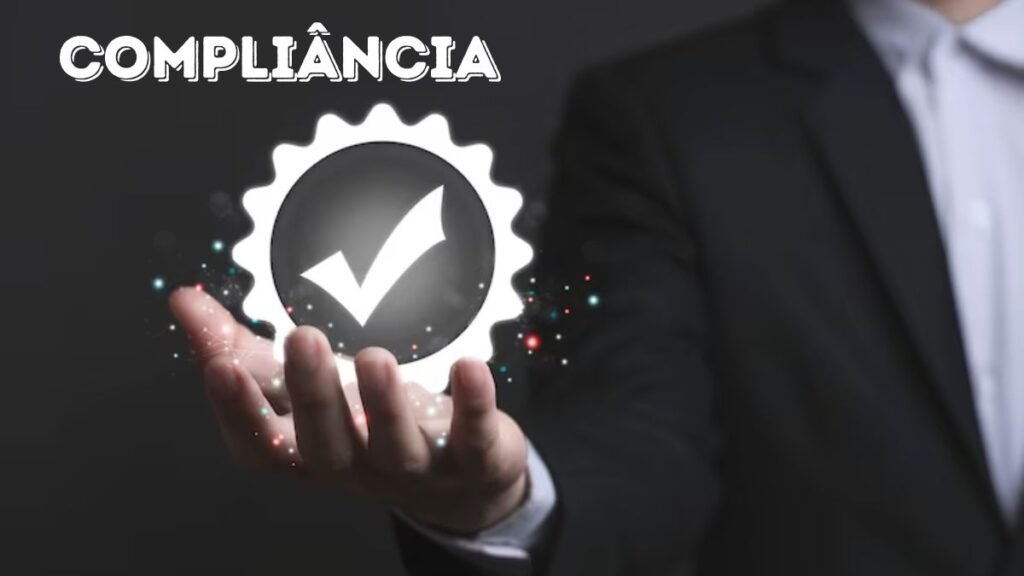Compliância can be defined as the state of complying with any organization’s requirements, laws, standards, or practices of ethical application. Stemming from the Latin word “compliere,” used in its meanings of “fulfilling” and “accomplishment,” compliance ensures that the operations of the company stay within the legal boundaries defined by the governing body, industry standards, and internal policies.
Compliance has emerged as a more significant theme in organizations today, driven by the increased complexity of regulatory requirements within a globalized business environment. The regulations varied from financial to environmental legislation and standards for data protection and industry regulations. Compliance will not only save one from legal penalties but also, more importantly, foster an organizational culture of integrity and responsibility.
What is Compliância
It means to act in an accordance with the legislation, industry-related rules, and organizational policies. It assures that the businesses would be run on ethical grounds, transparency, and by the involved laws and regulations. Compliância is not just about compliance with the law but being ethical and having integrity about the way of doing responsible business practices.
Importance of Compliância
It is the fulcrum of protection of business concerns against legal and reputational risks. Through compliance, organizations can demonstrate their regard for ethical principles and the law, thereby expressing their commitment to integrity and accountability. This builds trust with stakeholders—customers, investors, and regulators—which enhances the reputation and credibility of the business. Additionally, industry-specific regulations ensure adherence that reduces operational risks and continues a business.
Types of Compliância
| Type | Description | Industry/Application |
|---|---|---|
| Regulatory Compliância | Adherence to laws, regulations, and standards | Finance, Healthcare, Government |
| Corporate Compliância | Alignment with company policies, codes of conduct | All industries |
| Security Compliância | Protection of sensitive data and systems | Technology, Finance, Government |
| Environmental Compliância | Adherence to environmental regulations and standards | Manufacturing, Energy, Construction |
Components of Compliância
Compliância: Comprises several key components, including:
Legal Compliance
This involves adherence to laws and regulations relevant to the industry and jurisdiction in which the business operates. Legal compliance encompasses areas such as labor laws, data protection regulations, environmental regulations, and industry-specific requirements.
Ethical Standards
It also entails upholding ethical standards and principles in all business activities. This includes honesty, integrity, fairness, and respect for stakeholders’ rights. Ethical conduct forms the foundation of a strong compliance culture within organizations.
Internal Policies and Procedures
Organizations establish internal policies and procedures to ensure compliance with legal and ethical standards. These policies outline the expected behaviors and actions of employees and provide guidelines for decision-making and conduct in various business scenarios.
Challenges in Implementing Compliância
Implementing Compliância can be complex and poses several challenges, including:
Regulatory Complexity
Keeping pace with evolving regulations, laws, and standards across multiple jurisdictions.
Data Management
Collecting, storing, and analyzing large volumes of data from various sources.
Integration with Existing Systems
Seamlessly integrating Compliância with existing infrastructure, software, and processes.
Change Management
Overcoming resistance to change and ensuring user adoption.
Resource Constraints
Allocating sufficient resources (time, budget, personnel) to implement and maintain Compliância.
Scalability
Ensuring Compliância solutions can adapt to growing organizational needs.
Interoperability
Enabling Compliância to communicate effectively with other systems and stakeholders.
Future of Compliância
The future of Compliância is poised for significant growth and evolution, driven by technological advancements, changing regulatory landscapes, and increasing demands for transparency and accountability. Some potential developments include:
Artificial Intelligence (AI) and Machine Learning (ML) Integration
Compliância will leverage AI and ML to automate compliance processes, enhance risk detection, and improve regulatory reporting.
Real-time Monitoring and Analytics
Advanced analytics and real-time monitoring will enable organizations to proactively identify and address compliance risks.
Blockchain and Distributed Ledger Technology
Compliância will utilize blockchain to ensure secure, transparent, and tamper-proof data management and reporting.
Global Regulatory Harmonization
As global regulations evolve, Compliância will adapt to facilitate compliance across borders and industries.
Human-Centered Design and User Experience
Compliância solutions will prioritize user experience, making compliance more accessible and intuitive.
Integration with Emerging Technologies
Compliância will incorporate emerging technologies like IoT, cloud computing, and quantum computing to enhance compliance capabilities.
Frequently Asked Questions (FAQs)
Why is compliância important for businesses?
It is essential for businesses to uphold legal and ethical standards, mitigate risks, and maintain trust and credibility with stakeholders. Non-compliance can lead to legal penalties, reputational damage, and loss of business opportunities.
How can businesses ensure compliância?
Businesses can ensure compliância by implementing robust compliance programs, conducting regular risk assessments, providing employee training, and fostering a culture of ethics and integrity throughout the organization.
What are the consequences of non-compliance?
Non-compliance can result in legal penalties, fines, litigation, reputational damage, loss of business opportunities, and even criminal charges in severe cases. It can also erode stakeholder trust and negatively impact the organization’s long-term viability.
How does compliância contribute to business success?
It contributes to business success by reducing legal and reputational risks, enhancing stakeholder trust and confidence, improving operational efficiency, and fostering a positive corporate culture. It helps businesses build strong relationships with customers, investors, and regulatory authorities.
Is compliância a one-time effort?
No, It is an ongoing effort that requires continuous monitoring, review, and adaptation to changes in laws, regulations, and industry standards. Businesses must stay informed about regulatory developments and update their compliance programs accordingly to remain effective.
How can businesses stay updated on regulatory changes?
Businesses can stay updated on regulatory changes by subscribing to relevant industry publications, participating in professional associations, attending seminars and conferences, and consulting legal and compliance experts.
Conclusion
Compliância is a fundamental aspect of modern organizational management, ensuring that companies not only adhere to legal and regulatory requirements but also uphold ethical standards. By fostering a culture of compliance, organizations can protect their reputation, avoid legal penalties, and build trust with stakeholders. Ultimately, a strong compliance program is not just a legal necessity but a strategic advantage that promotes long-term sustainability and success.
